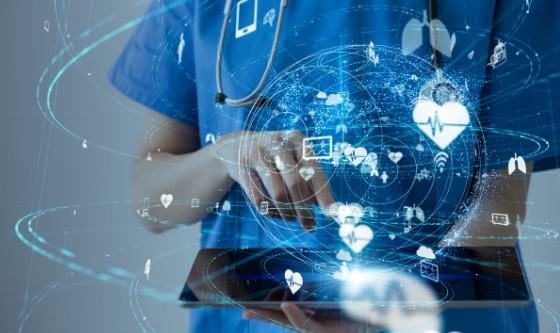In recent years, medical information technology has been revolutionizing the way healthcare is delivered to patients. From electronic medical records to telemedicine, these advancements are improving patient care in countless ways.
Electronic Health Records (EHRs) Streamline Information
Gone are the days of paper charts and files that can easily be lost or misplaced. EHRs allow healthcare providers to access a patient’s medical history with just a few clicks. This not only saves time but also ensures that all necessary information is readily available to provide the best possible care.
Telemedicine Expands Access to Care
With telemedicine, patients can now have virtual visits with their healthcare providers from the comfort of their own homes. This is particularly beneficial for those who live in remote areas or have mobility issues. Telemedicine has also proved invaluable during the COVID-19 pandemic, allowing patients to receive care while minimizing the risk of exposure.
Wearable Technology Monitors Health
From fitness trackers to smartwatches, wearable technology has become increasingly popular in monitoring health indicators such as heart rate, activity levels, and sleep patterns. This real-time data can provide valuable insights into a patient’s overall health and help healthcare providers make more informed decisions about their care.
Artificial Intelligence Enhances Diagnosis and Treatment
Artificial intelligence (AI) has the potential to revolutionize healthcare by improving diagnostic accuracy and predicting treatment outcomes. By analyzing large amounts of data, AI algorithms can identify patterns and trends that humans may overlook. This can lead to earlier detection of diseases and more personalized treatment plans.
Precision Medicine Tailors Treatment to Individuals
Precision medicine takes into account an individual’s genetics, environment, and lifestyle to develop personalized treatment plans. By considering these factors, healthcare providers can better predict how a patient will respond to a particular treatment and tailor interventions accordingly. This approach has the potential to revolutionize healthcare by moving away from a one-size-fits-all model to one that is tailored to each individual.
In conclusion, medical information technology has the power to transform the way healthcare is delivered to patients. By streamlining information, expanding access to care, monitoring health through wearable technology, harnessing the power of artificial intelligence, and embracing precision medicine, patient care is being revolutionized in ways that were once thought impossible. As technology continues to advance, the possibilities for improving patient care are endless.

